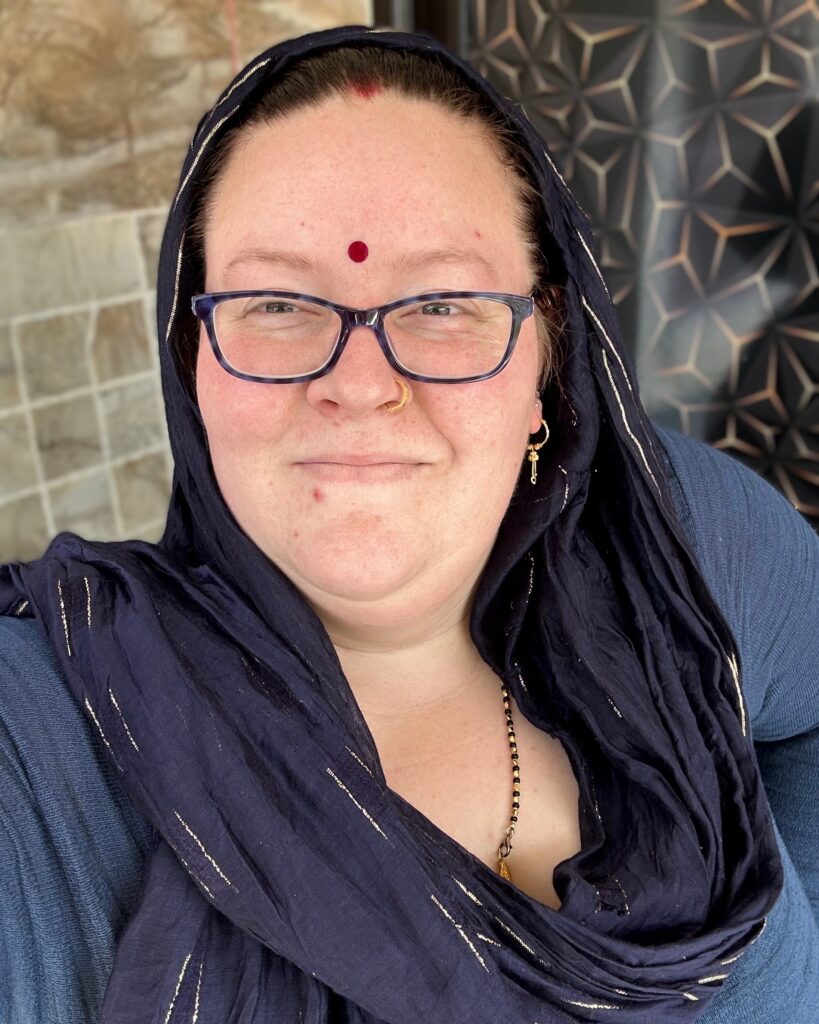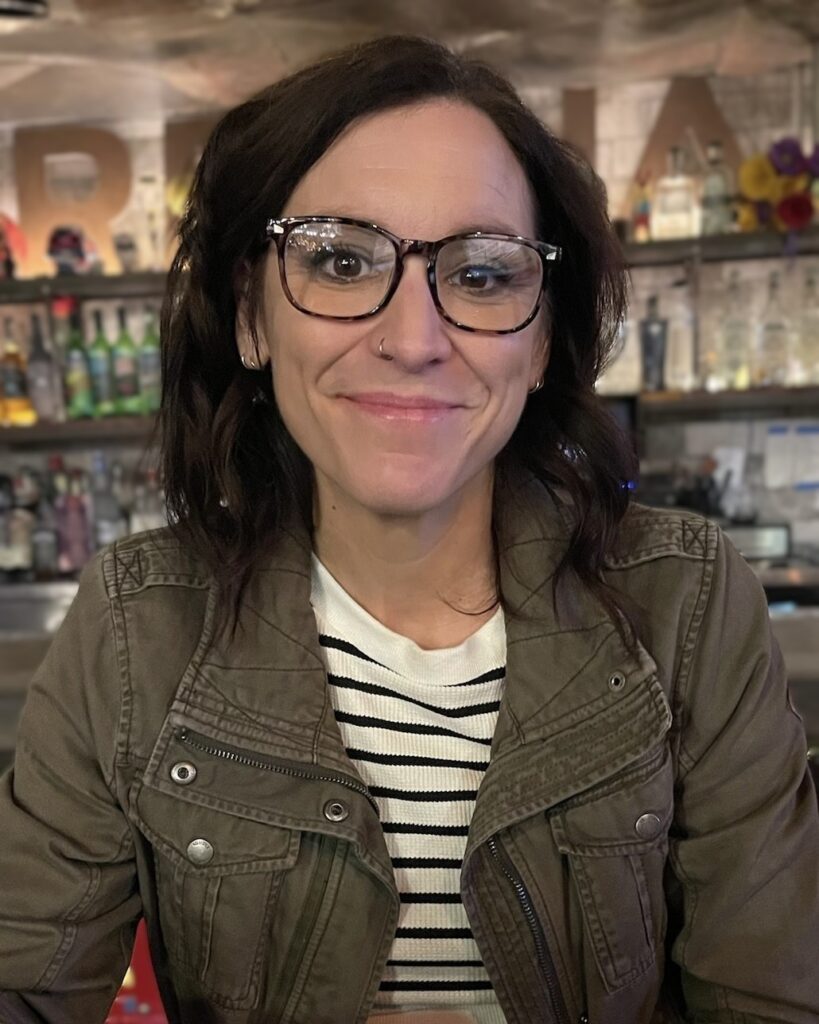Susan Segal
Careful
Susan Segal
Careful
Just call me the second Mrs. Roberts. The first one—Mrs. Roberts, that is—may she rest in peace, is dead. Gunshot. The police say self-inflicted. Right to the temple, BAM!, all sorts of red and white mess on the garish, yellow-flowered wallpaper. I was so glad to have an excuse to rip it down. Bobby said I could, though he looked, it seemed to me, almost longingly at the exact spot where the first Mrs. Roberts’s brain matter and bone had dripped down in slow motion.
We both saw it. Bobby because he came home to it after a particularly raucous evening in my bed (new positions, Bobby louder than usual), and me because he called me in hysterics, and I dressed quickly and rushed over. I lived only five minutes away, having taken an apartment two blocks from Bobby and the first Mrs. Roberts, which made it convenient for me to go over and clean their house, which was my part-time job while I was getting my Master’s in Early Childhood Education. Bobby met me at the door, his face actually green—I mean, truly, like the color people say but you think is an exaggeration—a sort of pale pea color, with yellow around the eyes where he was squinting. I let him lead me to the body, which was slumped below the ugly wallpaper, a smell like matches and poop in the air. I ran to the bathroom and threw up.
*
And yes, his name is Robert Roberts. His parents’ idea of a joke. He has four older sisters, and his parents were so sure he was going to be a girl they had already picked out his name: Persephone. I know, don’t ask me. When he turned out to be a boy, they were stunned. “Wouldn’t it be funny if he was named Robert?” his mother said, and his father, who was sure he only knew how to parent girls, chuckled nervously and agreed. You can imagine the teasing in school. Bobby has never quite lived it down.
I think that is partly why he married the first Mrs. Roberts. She would not tolerate self-pity. “What are you, ten?” she used to say, whenever Bobby brought up his humiliating past. “Who wasn’t teased as a child,” she insisted. “I was called Miss Moneypenny all the way through eighth grade,” she said, “because my dad drove a Bentley. You don’t hear me boo-hooing about my tragic childhood, do you?”
She was so no-nonsense, Bobby told me, that she used to fill up her wallet and then empty it for the homeless people she encountered in her day. This was Los Angeles, so she encountered quite a few. “Oh, for goodness’ sake,” she would say, counting out at least ten dollars into the unhoused’s hand, or hat, or whatever receptacle they would reach out with. “We need to get you off the street!” Mrs. Roberts apparently believed that her money (“her money,” Bobby emphasized, “she never lets me near her bank account”) would be all it took to change someone’s life.
She was that way with me. She paid me extraordinarily well for a twenty-something cleaning lady with no experience other than making her bed and half-heartedly waging a losing battle with dust and clothes pileups in her own bedroom. (Ad on Craigslist—not really the first Mrs. R’s style, but people will surprise you in the most uncanny ways). “You need to make something of yourself,” the first Mrs. Roberts said to me each time she paid me in crisp twenty-dollar bills. “We can’t have you cleaning houses forever!” When she spoke like that you had the feeling that you absolutely had to do whatever she had said you should, or her disappointment would somehow crush you.
As I said more than once to Bobby, “It’s nice in the short term, but imagine being married to that.”
Bobby said, “I am.”
Do I think she deserved to die? Of course not. I’m not a monster. Neither was she. But Bobby wasn’t happy. That was evident from the first time I met him, on my second day on the job (every other Monday, 9 a.m. sharp). Bobby had forgotten his cellphone on his way to work, and so came through the front door at 9:10, just as Mrs. Roberts was getting ready to leave on one of her many errands that kept her out most of the day. I knew she was an officer on The Committee for the Preservation of the Public Library because when she first hired me, she had given me a card embossed with the Committee’s name, and in smaller letters below that, her name and title of her office—Secretary? Maybe Treasurer. I wasn’t sure why she gave me the card. I don’t even use the library, although I like to read. I have an unlimited audio book subscription now, thanks to Bobby, but that came later.
Anyway, the first Mrs. Roberts always seemed inordinately busy, even though I knew the Committee meetings were only once a month, but she almost always came home empty-handed—no shopping bags, no, well, library books. According to Bobby, she never cooked, and he often had to forage for his dinner, though the kitchen was always well stocked (now and then I would sneak a piece of smooth imported cheese or a small hunk of roast chicken off a half-eaten carcass, and a soda). According to Bobby, the first Mrs. Roberts barely ate—subsisting on water crackers and gouda—and left him to fend for himself. It’s true she was thin: she usually wore long sleeves, but you could see her collar bones rising like protractors from the necks of her expensive blouses. God knows what you spend all your money on, Bobby would say to her, laughing like he meant it as a joke, but I think Mrs. Roberts the first knew he wasn’t joking.
So anyway. He walked in the door that first day and saw me, “As if in a vision,” he later told me. I didn’t even register his presence. I was setting up the vacuum in the living room with my back to the door and my ear buds in. The Chicks, back when they were still Dixie: “Goodbye Earl,” one of my favorites. I was wearing my denim cutoffs and a gray t-shirt that said CSUN (home of the Master’s in Early Childhood Education) in black letters stretched over my boobs, which I liked, because it made them look bigger than they actually are, which is really quite small. Bobby said he took one look at my backside and was smitten, which is, of course, incredibly objectifying, but it made him notice me, and he hadn’t even seen my boobs yet.
“Hi, I’m Bob!” he yelled, which made my heart go wonky, as I had been sure I was alone. I turned around, clawing out my ear buds.
He was (is) very tall, very trim. Snow-white hair—too thick for him to be really old—and skin as smooth as a baby’s. He looked like that guy on TV must have looked thirty years ago—the one who used to host SNL a lot before I was born and now is on a show with Selena Gomez of all people. He even had the glasses.
My heart was just starting to calm down when Bobby came toward me, put out his hand, said, “I’m sorry if I startled you.” Without my ear buds in, he seemed less scary. I wasn’t smitten—far from it—but I liked the sound of his voice: edgy but kind, like a skittish puppy. The first Mrs. Roberts always sounded like she was on the verge of a tirade.
I had a sort of boyfriend at the time, don’t get me wrong. Bobby and I didn’t hook up in a matter of days. It was much more gradual. I mean, we fell in love sort of, and I dumped the boyfriend, who worked at Jiffy Lube part time while he was getting his BS in Accountancy at CSUN. My boyfriend (Cameron) wasn’t younger than me, just got started later. He was nice enough, but he wanted to be an accountant. I didn’t know who or what I wanted, but I knew it wasn’t that.
Pretty soon Bobby was making up excuses to leave late for work on the days I worked, or he’d come home an hour or two after he’d left saying he’d forgotten something. He was interested in my studies, which I always told older people about as soon as I met them, since “house cleaner” as a vocation made them wince or turn away. But to Bobby, I quickly confessed that I didn’t even like children. Bobby and the first Mrs. R didn’t have any, so that was no impediment. When he asked me why I was getting a Master’s in Early Childhood Education then, I explained that my mom ran a daycare out of her house, and it was a ready-made career for me, as she planned to turn the whole thing over to me as soon as I got my degree. “It’s security,” I explained to Bobby.
“But you are so young,” Bobby said. This was about eight weeks after we met. We were sitting on the couch for this conversation. His knee kept flopping over to touch mine. “You could take some risks and do something you actually like.”
“I am risk-averse,” I told him. I had taken a test at CSUN’s Career Center that confirmed it. Also, my father left when I was seven, my mom had three kids to take care of and a business to run, some days she couldn’t make both the rent and the grocery budget, blah blah blah, the usual sob story.
Bobby nodded. He looked so sad for me. Behind his glasses, his eyes drooped a little at the corners.
“I’m okay, you know,” I said, slightly miffed that he thought I was so pathetic.
“Oh, I know you are,” he said, then leaned over and kissed me.
I wasn’t surprised, even though he had made no moves in the four or so times up ‘til then that we had talked. When he kissed me, what I thought was, “Oh, finally. Yes, this.” We kissed a lot. It was thrilling in an illicit sort of way, but he wasn’t the world’s greatest kisser. A bit sloppy. Too much tongue. Jiffy Lube guy (Cameron) was better. But Cameron hadn’t fallen in love with me the way Bobby did. A little bit after that first kiss, and then all at once after the first time we fucked.
Don’t ask. Yes, we did it in his bed. He double checked that Mrs. R the first was in Ventura visiting her parents for the whole day, and it was only ten in the morning. Yes, I changed the sheets, what do you think I am, a monster?
*
Maybe she began to suspect. Maybe she was beginning to lose her will to live, even then. Whatever, a few weeks after Bobby and I started hooking up (that’s all it was at first, or so I thought), she began staying home in the mornings, then all day. She was going to resign, she told me, from the Committee for the Preservation of the Public Library. The Committee had started discussing whether to ban certain books, she said, and it was simply too outrageous to continue. She was going to write them a scathing letter—on paper, not email, so they couldn’t just erase it and pretend she had never protested.
This may have been the longest she ever spoke to me. She seemed to think I cared about the Committee and her role in it, though I wasn’t sure why. Maybe I had oohed and ahhed at the card she gave me on that first day. Anyway, Bobby had to stay at work all day now; he couldn’t sneak home to meet me. So we moved over to my place—he told Mrs. R that he was going to have some late afternoon meetings because of a new client (he’s an estate lawyer, which at first I thought was exciting, but when he explained that he never gets to stand up in court and accuse people of things, it seemed to me about as interesting as working at Jiffy Lube) and he high-tailed it over to my place direct from work two or three times a week. Mostly it was for some rushed sex and a hangdog embrace as he found it harder and harder to let go of me, but we had some laughs, and Bobby made jokes about Mrs. R the first that I fake laughed at. It was hard not to feel sorry for her. If she knew Bobby had gone off her, it was never evident when I was around.
To tell the truth, I was confused about what I should do. Bobby was forty-two. I was twenty-five. He had a mortgage and a sedan, and he spent all day talking to people about what they should do when they died. I mean, before they died, obviously. At least Jiffy Lube guy liked the same music I do. Bobby loathes The Chicks, Dixie or otherwise. On the other hand, Bobby was so into me. And he genuinely seemed to care about my life. He kept pushing me to think about quitting school and doing something I loved—I ached to ask him if he would pay, but I knew better. I could see he was coming to that conclusion himself—that if he paid for me, I could be happy. I started making a point of emptying my refrigerator before he came over and wearing the same clothes over and over. Every time he tsk tsked at my destitution, I hung my head and tried to look lost. By this time, he had seen my boobs for real and had come to his own happy conclusion about them, and also about all the other parts of me, inside and out.
One day, about nine months in, he told me he was in love with me. That’s when I really started thinking about what I loved, what I might do with my life if he was going to cover the expenses. What did I like? Clothes. Puppies. Driving long distances all by myself. Audio books, especially trilogies about other universes. Three influencers on TikTok who are trying to break into film. Maybe I could break into film.
We were, as usual, lying in my bed, post-coitally, as they say. Bobby was flat on his back, his silver hair matted with sweat. His chest rose and fell in quick bursts, like he had run a sprint. “I love you,” he said, not taking his eyes off the ceiling. “Oh, how I love you!” He turned his head to me then and grabbed my left hand with his right one. “Do you love me?”
I looked at him. The watery-blue puppy eyes, so naked without their glasses. The long, straight nose. The sharp jawline. He was a handsome man. A handsome man who loved me. So I said, yes, I loved him back.
He grinned so wide I thought the sides of his mouth would split. “We need to be together. I need to leave my wife and marry you. I need to do it now!”
He actually sat up in bed, the staircase of his spine curving down his hunched back.
“Whoa,” I said, sitting up too. “Not so fast.”
He looked at me. “What?”
“I mean, don’t you want to give it some thought?”
“What’s to think about?” Bobby said. “I’m forty-seven years old. I’m not getting any younger. I don’t want to waste another minute of my life.”
“I thought you were forty-two.”
The grin dropped. He looked at me. His eyes narrowed for a second, then crinkled with his sheepish grin. “I may have fudged a little. I didn’t want you to….”
“I get it,” I said, patting his arm.
Frankly, I thought he’d get home and come to his senses. The first Mrs. R would say something like, “It’s time we renewed our wedding vows,” and he would crumble. But that didn’t happen. He told me that he informed her that weekend he wanted a divorce, and that she was sad, but said okay. He told me our path was clear.
*
The first Mrs. Roberts died messily and tragically, according to the article in the local paper. It was Los Angeles, so death by gunshot—even self-inflicted—merited little more than a couple of paragraphs in the city section of the online paper, and nothing at all in the hard copy that Bobby still subscribed to. She left a note, Bobby said, but the police took it away and I never saw it. Bobby said it said, “I simply can’t go on,” unmistakably in her handwriting. The police came back and questioned him a bunch of times, and, as I was the maid, they questioned me too. I told them as much of the truth as was prudent: she was a good employer—tough, but generous. I knew nothing about her private life, which in a way was true: I never thought I could see into Mrs. R the first’s heart; I wouldn’t presume. Did she seem unhappy, the cops asked me. Did she seem afraid of her husband? I told them I couldn’t possibly know, and that was the truth. Had I ever noticed the gun in the house? I told them no.
They nosed around a while longer, but eventually they gave up and pronounced the death a suicide. I’ve always wondered why, having looked into every aspect of the first Mrs. R’s life, they never considered the possibility that the note Bobby found could have been an early draft of her resignation letter to the Committee for the Preservation of the Public Library. I guess I should be grateful the cops had bigger fish to fry. This was Los Angeles, after all.
*
Bobby and I waited to get married a decent six months, which is about how long it took the police to conclude that Mrs. Roberts the first had, indeed, blown her own brains out. Although I practically moved in right after the funeral. Secretly. By secretly I mean I kept paying the rent on my apartment, had my mail forwarded and didn’t tell anyone about my move, not even my mom. For those early months before we were married, I didn’t exactly hide in the house, but I didn’t go out unnecessarily, either. I quit school, as I said, and started getting pedicures, while I planned my next move.
I waited ’til Bobby and I were actually married to tell my mom that she’d have to find someone else to take over the daycare. After I told her—after the crying and the yelling—I felt as if I weighed nothing. I felt as if I could float back to Bobby’s house—to our house—and finally discover my bliss.
*
I found the gun one Monday in the early days of my working for the Robertses. They kept it in a safe on the shelf in their shared closet, and for some reason, the safe was open when I was in the bedroom cleaning, maybe the second or third week I worked for them. Mrs. R the first had not gone out yet, and I called to her and told her the safe was open. She thanked me and closed it, then said, “Oh,” and slapped her forehead with her open hand. I was changing the pillowcases, but I saw her, out of the corner of my eye, go to the dresser and open the second drawer from the bottom, then take out a notebook, which she carried back to the safe. She read from the notebook as she twirled the dial of the combination lock, opened the safe and took out a piece of paper. She looked over at me, but I spun my head back, and she thought I hadn’t seen. I know this because she replaced the book containing the combination back in the dresser, right where I’d seen her get it from.
So, what I’m saying is that yes, I could have gotten to the gun. I could have loaded it with the ammunition that was also in the safe. Contrary to what I had told the police, yes. A white lie. I’m not a monster. I could have used the gun if I’d wanted. The thing is, I could not for the life of me figure out what I wanted. I said yes to being the second Mrs. Roberts because it seemed like a practical thing to do at that time. It was a relief—as Bobby had said it would be—to quit school, to give up my apartment and never have to worry about money again. To know that I was safe and untouchable. Also, it was so nice to have a whole house to myself to do with as I pleased: first and foremost, to change that awful yellow wallpaper and paint all the walls a pure and blinding white.
But you can’t spend your life redecorating and getting pedicures. After I buy new furniture, I really don’t know what I want to do next. It turns out that film school is no breeze to get into. I did my research. The good ones want you to have already made a film, which makes no sense to me, but whatever. It was just a thought.
Maybe it’s travel? Bobby said Hawaii in July, when he’s not so busy, but I had this idea of taking the new Tesla on a long trip, with The Chronicles of the Kingdom of Inish (books one through six) on full blast through the Premium Audio speakers. I’ve always wanted to drive to Wyoming and Montana and some of those other states no one ever seems to be from. But Bobby doesn’t want me to go anywhere without him.
Maybe Bobby knows someone who knows someone in the movie business, and I could skip the school altogether. Or maybe I could write a book. The good news is, as long as it doesn’t take me anywhere without him (Oh, how I adore you! he said on our wedding day, which was sweet, but also a little embarrassing; I mean, who talks like that?), Bobby will make my dreams come true. I’m not worried about that. I just don’t know what to ask him for. He’s already given me so much.
Susan Segal’s novel, Aria, was chosen by Barnes and Noble for its Nook First: Compelling Reads from Emerging Writers. Her short fiction has won numerous awards and been nominated for the Pushcart Prize, Best Short Fictions Anthology, The Best of the Net, Craft CNF prize, and has appeared in Redbook, The Atticus Review, The Evansville Review, Juked, and others. She has an MFA in fiction from the University of California at Irvine and is a Professor Emerita of English at the University of Southern California, where she taught fiction and creative non-fiction writing, editing, and literature. She lives in Orange County, California.

Featured in:
Red Rock Review
Issue 52



